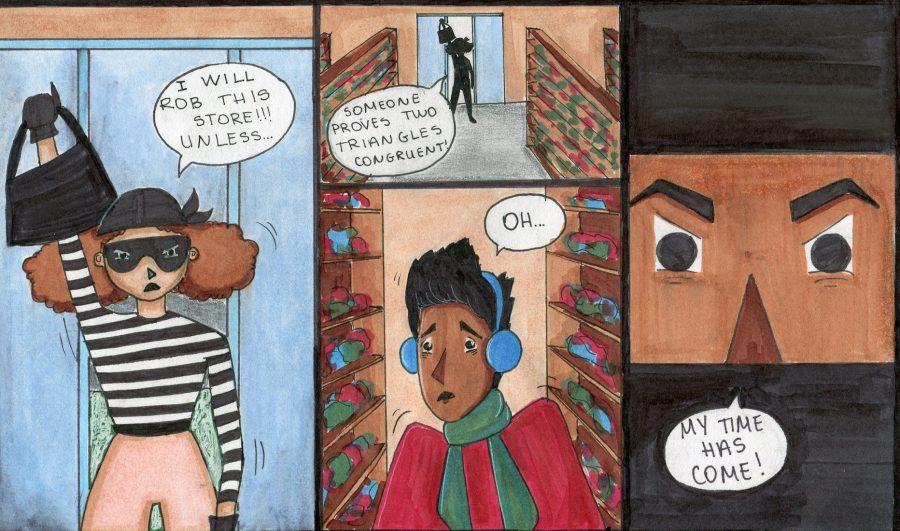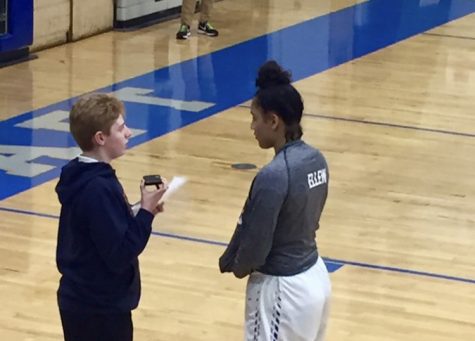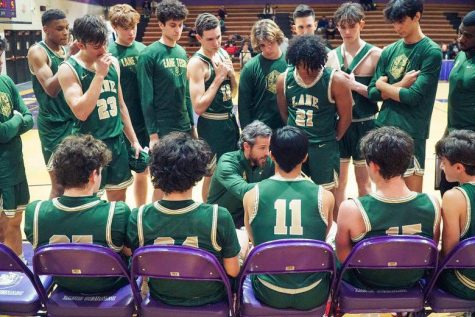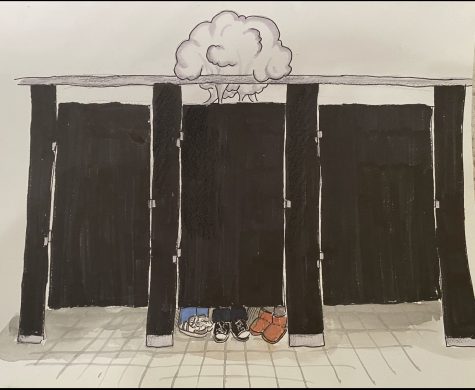Graduation requirements have no real world application
Illustration by Victoria Otrubina
Photography. Orchestra. Astronomy. Programming. Creative writing. Marine biology. Lane prides itself on offering a large selection of electives and AP courses. But is the school truly deserving of that reputation if most students don’t even receive the opportunity to take the electives they want to?
The halls of Lane are swimming with students functioning solely on three hours of sleep, copious amounts of caffeine, and the societally fueled desire to receive passing grades in all seven classes — even the ones they don’t have any interest in.
The lives of children and teenagers in the United States are centered around a liberal education system. Students have very little say in what areas they want to study — instead, they have basic material from every subject shoved down their throat on a daily basis for over a decade.
Intelligence is typically regarded as one’s grade point average or score on a standardized test, when that isn’t necessarily accurate. Why spend countless years learning to be “good” at various subjects when you could be excelling in an area that you’re genuinely interested in?
Spending a large amount of time studying a topic that isn’t appealing to them can be detrimental to a student’s attitude towards their education. So, why does the school system continue to enforce these requirements, especially if they know that they aren’t always beneficial?
A liberal arts curriculum can be valuable in earlier years of education. Kids in elementary school are young, impressionable, and eager to learn; the exposure to several different topics can be beneficial.
“When you’re in grade school, you have less of a grasp on what you want to do in life,” Mr. Payano, music teacher and recent Lane alum, said. “You’re still figuring things out. It is good to have a well-rounded education in those years.”
“I feel that Lane students work hard in their core classes their entire lives to get that letter of acceptance,” Samantha Michalec, Div. 751, said. “They work hard, put in the hours, and by then, most students know what area they want to study.”
Once students get to high school, it is common for the curiosity they possessed in their childhood to be diminished; extinguished by debilitating amounts of homework and stress.
“I took five years of classes that didn’t interest me and made me hate the schooling system,” Michalec said, speaking from her experiences in the LTAC program as well as in high school. “I’m worn out from all of the unnecessary classes.”
Although the work may be exhausting, some students still feel that it is important to complete. Ethan Stewart, a recent Lane alum and current freshman at U of I, believes that taking a variety of courses is essential.
“Part of being a citizen is having an understanding of most basic topics,” Stewart said. “A person may not think they should take biology when they’re an art major, but this lends them an informed view of the world, which can impact how they make decisions.”
Payano recalled how education at Lane has become increasingly more liberal over the years. “When I was a student here at Lane, they had majors,” he said. “They had different tracks. I was a music major, so all of my electives were music classes, but I still had to take chemistry.”
Lane’s graduation requirements include four English credits, four math credits, four science credits, three social science credits, three world language credits, two fine arts credits, two physical education electives, a minimum of six college prep electives, and at least one AP course. Basically, the requirements tell students that if you aren’t well-rounded, you aren’t fit to go to college.
However, this isn’t necessarily the case. Some of the most esteemed institutions in the United States are not centered around a liberal arts education.
Brown University, an Ivy League college, has implemented what is known as an open curriculum. The college’s website explains that students have the option to take whatever classes they’d like, as long as they complete at least thirty courses after eight semesters.
“I found a job out of school that is in my desired career field,” Michalec said. “I find myself not wanting to be in class but rather at work gaining more experience for my career. I could be spending my time gaining experience but this isn’t a possibility because of classes that are required to graduate.”
“It all goes back to treating you guys like children but expecting you to be adults,” Payano said. “And I have issues with that. It’s like mixed messaging.”
“Are you going to use this in real life?” he said. “If the answer is “no” then I don’t need to teach it.”
Your contribution will allow us to cover our annual website hosting costs, which are no longer covered by our district/school. If we do not meet our goal, we may lose this website and its archive of stories covering 2009-2023. Student journalists at Lane Tech use this archive to research past coverage of various topics and link to past stories to offer readers additional context for current stories. Thank you for supporting the award-winning reporting and writing of journalism students at Lane Tech College Prep!
Background information on why the school district no longer allows our school to cover web hosting costs:
https://lanetechchampion.org/12583/uncategorized/special-coverage-impact-of-soppa-on-cps-students-teachers/
https://lanetechchampion.org/11702/opinion/staff-editorial-cpss-soppa-policy-is-choking-students-learning-and-the-champion/

Lara Sonuga is a senior at Lane and one of the Warrior's chief editors. Writing, reading, and listening to music have been her favorite pastimes since...








